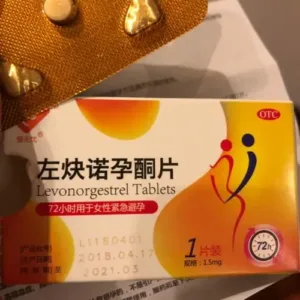Isotretinoin Capsule
Function:
Oral isotretinoin is generally used to treat acne conglobata or nodular cystic acne (nodular acne, that is, inflammatory lesions ≥5 mm in diameter, which may be nodular) that are severe and refractory to other treatments (such as systemic antibiotics). Purulence or bleeding), topical isotretinoin is generally used to treat localized acne vulgaris and comedones.
Dosage:
This product should be used under the guidance of a doctor. Isotretinoin soft capsules should be taken with food. The dose of oral treatment should vary from person to person, ranging from 0.1-1mg/kg/d. It is generally recommended that the starting dose is 0.5mg/kg/d, taken in two times with food. After 2-4 weeks of treatment, the dose can be adjusted as appropriate based on clinical effects and adverse reactions. A course of treatment lasts for 6-8 weeks or as directed by your doctor. Since taking the drug without food can significantly reduce drug absorption, the doctor should be informed in detail about the compliance of taking the drug with food before increasing the dose. Although renal impairment does not affect the pharmacokinetics of isotretinoin, the UK Registered Medicines Information recommends that patients with severe renal impairment should use a lower initial dose when oral isotretinoin is used to treat acne, e.g. 10mg daily. The dose can be gradually increased to 1 mg/kg daily if permitted. The safety of once-daily dosing of isotretinoin has not been established and once-daily dosing is not recommended. If the skin lesions persist or severe nodular acne recurs more than 2 months after discontinuation of treatment, a second course of treatment may be considered. Because experience has shown that symptoms can continue to improve in the short term after stopping the drug, so if a second course of treatment is required, the interval between the two courses should be more than 8 weeks. The optimal treatment interval for patients with skeletal immaturity is unknown. Effective contraceptive measures should be used during any course of treatment. During the period of taking the medicine, blood, urine routine, blood lipids, liver function and other tests should be carried out regularly. Sun exposure should be avoided while taking this medication. Isotretinoin gel is for external use. Apply a small amount to the affected area. 1-2 times a day, 6-8 weeks as a course of treatment. The affected skin should be cleansed before application and allowed to dry before application. Do not apply this medicine to the lips, mouth, eyes or other mucous membranes and corners of the nose. Be careful when using it on sensitive skin areas such as the neck. Do not use this medicine on damaged, eczema-like or sun-burned skin areas. Exposed areas where this product is applied should be protected from sunlight. If such exposure is unavoidable, apply a sunscreen. Therefore, the area where this product is applied should be covered with cloth as much as possible, and fluorescent lamps should not be used during use of this product.
Adverse reactions:
When using isotretinoin gel, you may experience pinprick pain, burning or mild irritation, and redness and peeling may also occur at the application site. However, these reactions disappeared after the drug was stopped. If irritation persists and is severe, stop taking the medication and consult a doctor. Systemic damage: allergic reactions (including vasculitis, anaphylaxis), edema, fatigue, lymphadenopathy, weight loss. Cardiovascular system: palpitations, tachycardia, thrombosis, stroke. Endocrine or metabolic: hyperlipidemia, blood sugar fluctuations. Digestive system: Inflammatory bowel disease, hepatitis, pancreatitis, bleeding gums, gingivitis, colitis, esophagitis or esophageal ulcers, ileitis, etc., as well as nausea and other non-specific gastrointestinal symptoms. Blood system: anemia, thrombocytopenia, neutropenia. Agranulocytosis has been rarely reported. Musculoskeletal system: bone hyperplasia, calcification of tendons and ligaments, premature epiphyseal closure, reduced bone density, musculoskeletal symptoms (some severe) including low back pain, myalgia, arthralgia, transient chest pain, arthritis, tendonitis and other bone abnormalities, elevated creatine phosphokinase/rare reports of rhabdomyolysis, etc. Nervous system: Benign intracranial hypertension (also known as pseudotumor cerebri), dizziness, drowsiness, headache, insomnia, drowsiness, malaise, nervousness, paresthesias, seizures, stroke, fainting, weakness. Mental: Suicidal ideation, suicidal tendencies, suicide, depression, psychosis, aggression, violence. In reports related to depression, some patients have reduced symptoms of depression after stopping medication, but will relapse after taking medication again. Reproductive system: menstrual disorders. Respiratory system: Bronchospasm (with or without history of asthma), respiratory tract infections, voice changes. Skin and skin appendages: acne breakouts, hair loss (which persists in some patients after stopping the drug), ecchymosis, cheilitis, dry mouth, dry nose, dry skin, nosebleeds, erythema multiforme, facial flushing, increased skin fragility, Hirsutism, hyperpigmentation and hypopigmentation, infection (including diffuse herpes simplex), onychodystrophy, paronychia, palmoplantar peeling, photosensitivity reaction, Stamford-Jones syndrome, toxic epidermal necrolysis, pruritus, suppuration granulomas, rashes (including facial erythema, seborrheic dermatitis, and eczema), urticaria, vasculitis (including Wegener’s granulomatosis), and delayed wound healing. Other sensations: hearing impairment, tinnitus, corneal opacity, nighttime vision loss that may persist after discontinuation of the drug, cataracts, color blindness, conjunctivitis, dry eyes, blepharitis, keratitis, optic neuritis, photophobia, visual impairment. Urinary system: glomerulonephritis. Laboratory tests showed elevated triacylglycerol, reduced high-density lipoprotein (HDL), elevated serum cholesterol, elevated ALP, ALT, AST, γ-GT, or LDH, elevated fasting blood glucose, elevated CPK, and elevated serum uric acid. , decreased red blood cell count, decreased white blood cell count (including severe neutropenia and rare agranulocytosis), accelerated erythrocyte sedimentation rate, increased platelet count, thrombocytopenia, white blood cells and proteinuria in urine, microscopic or gross hematuria .
Drug contraindications:
Contraindicated in pregnancy, lactation, and liver and kidney dysfunction.
Share:
Products
Our offers
Health Classification
Let us work together to protect precious health



























